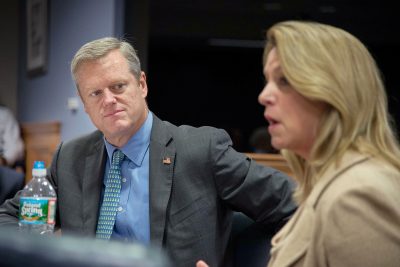
Despite having vetoed a similar proposal last year, Massachusetts Gov. Charlie Baker included a provision in the state’s fiscal year 2020 budget that would end the “family cap,” a welfare rule that prevents children who are born to families that already receive public assistance from receiving benefits.
The 2020 budget will fund the state from July 1, 2019, to June 30, 2020. The removal of the family cap was proposed Jan. 1. However, it will not go into effect until Oct. 1, 2019, Naomi Meyer, an attorney at Greater Boston Legal Services, wrote in an email.
Meyer wrote that she thinks this nine-month time span between when the family cap will not be changed is too long.
“We think kids should not have to wait,” Meyer said.
Sophie Hansen, political director of the Massachusetts chapter of the National Association of Social Workers, said her organization supports Baker’s proposal to lift the family cap, as it is a dated policy.
Hansen said that at the time the cap was enacted, the answer to minimizing the number of children born into poverty was thought to be passing legislation to disincentivize families from having more children.
“We now know that this is untrue,” Hansen said. “It’s ineffective, and it’s a harmful policy towards children.”
Melanie O’Malley, communications and policy manager for the Massachusetts Public Health Association, wrote in an email that the association endorses lifting the welfare cap on children.
Alejandro Avila, 23, of Back Bay, said he supports an end to the family cap because of the benefits it could have for children.
“I saw that in the medical industry, the children tend to eat less healthy when they are denied that extra help,” Avila said. “I think nutrition can define the life of a child.”
Still, Avila said he is wary that the elimination of the cap could lead people to abuse the welfare system.
“I support it if it’s aimed toward demographics that need the help,” Avila said. “However, I do think there is a downside in the sense that it may not be a good idea to allow people to become too dependent on government aid.”
Lauren Shea, 34, of Fenway, said she thinks the financial cap should be eliminated for the benefit of families.
“Families need welfare to support their children,” Shea said.
Nasif Ahmed, 21, of Fenway, said the elimination of the cap would be an investment for the future of families and their children.
“If you’re spending more money on family welfare, that means that they’re ensuring that the future of the nation is in good hands and taken care of,” Ahmed said.
Hansen said she sees Massachusetts’ welfare policies as not only behind schedule, but also behind other states that have already eliminated similar caps.
“Originally when those caps were implemented, many states have actually repealed them, about half of the states that originally implemented have repealed them since,” Hansen said. “But Massachusetts is still not one of those states.”



















































































































